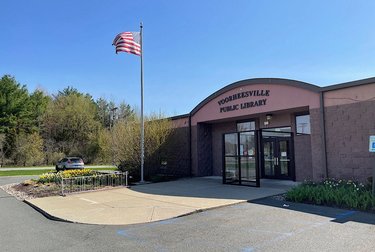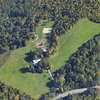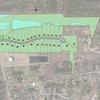Voorheesville Public Library’s 2024-25 proposed budget up 5%, tax levy up 3%
VOORHEESVILLE — At $1.35 million, the Voorheesville Public Library’s proposed budget for next year is up 5.1 percent over this year’s voter-approved spending plan.
On May 21, Voorheesville School District residents, in addition to voting on a school budget and board candidates, will be asked to approve a $1.29 million tax levy for the library, which is an increase of 3.1 percent from this year.
Although the library follows school-district lines, it has its own elected board of trustees that sets the library budget.
With board President Belinda Heckler not running for re-election, Laura Lamberton is uncontested in her bid for five-year term as trustee.
With the library continuing its grant-funded renovations to enhance its local history collection, Library Director Sarah Clark told The Enterprise the proposed 2024-25 budget includes funding for a half-time librarian “to work on optimizing our local history collection.”
District voters vote on library budgets only when there’s a proposed increase in the tax levy, because the state’s Education Law says once a spending plan is approved by voters, it’s considered an annual appropriation.
The proposed budget for next year is under the state-set cap by about $16,000, and would raise tax rates for property owners in the towns of New Scotland, Guilderland, and Berne between about 2.7 percent and 3.2 percent, depending on the municipality.
New Scotland residents’ tax rate will increase from $ 1.28 per $1,000 of assessed value to $1.32; in Guilderland, the rate will go from $1.12 to $1.15 per $1,000; and in Berne, residents’ tax rate will increase from $2.21 to $2.28 per $1,000 of assessed home value, according to the library.
Also according to the library, a home in the district with an assessed value of $300,000 will pay about $12 more in property taxes next year if it’s located in New Scotland; $9 more in Guilderland; and $21 more in Berne. Berne has not undergone a town-wide property revaluation in decades so the state-set equalization rate accounts for that.
The library’s spending increase for next year is almost exclusively due to a $69,500 increase in employee salaries — a figure that includes the new half-time librarian’s pay — and a 44-percent spike in maintenance and utilities costs, which are set to go from $38,300 to $55,000.


